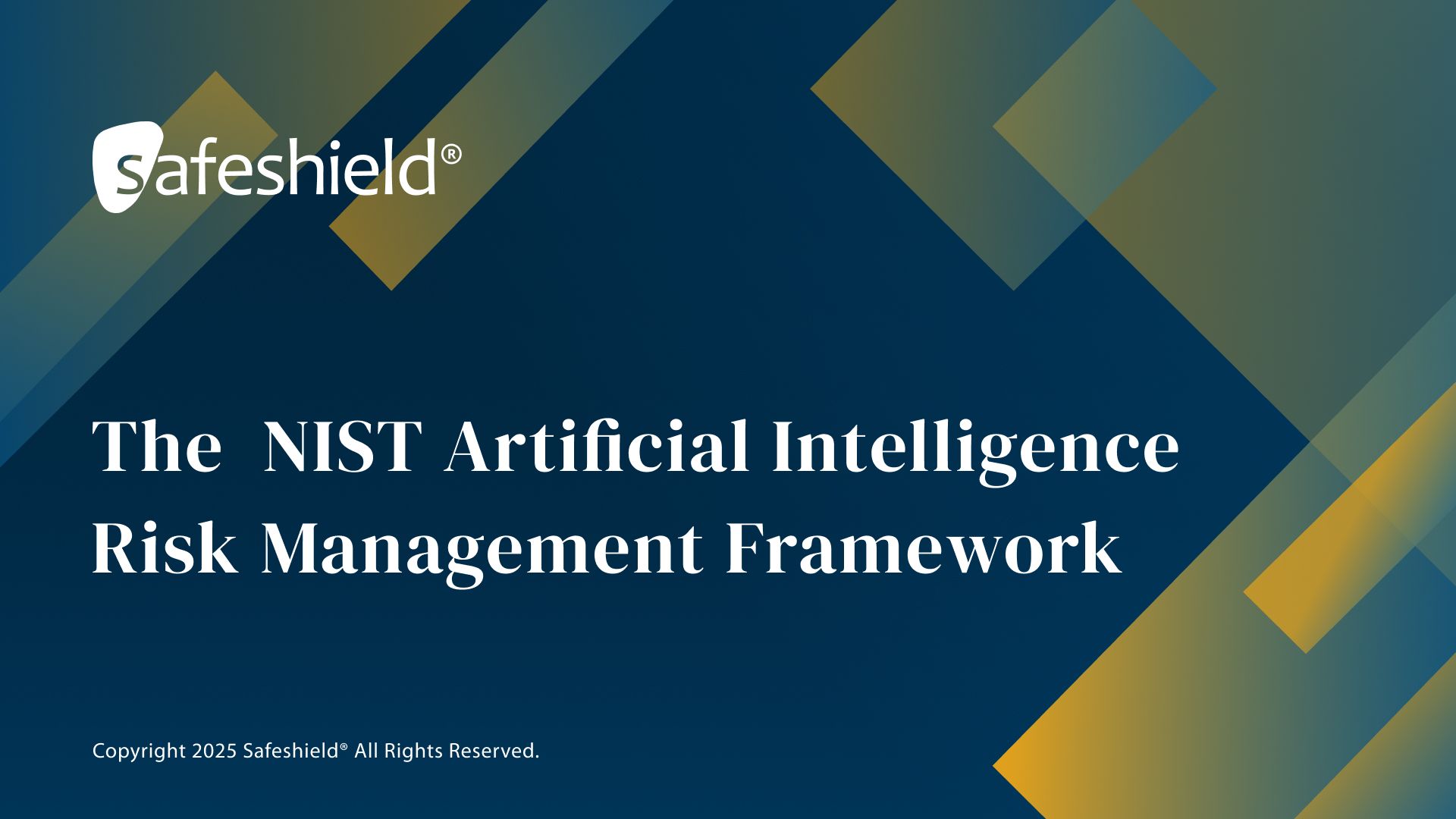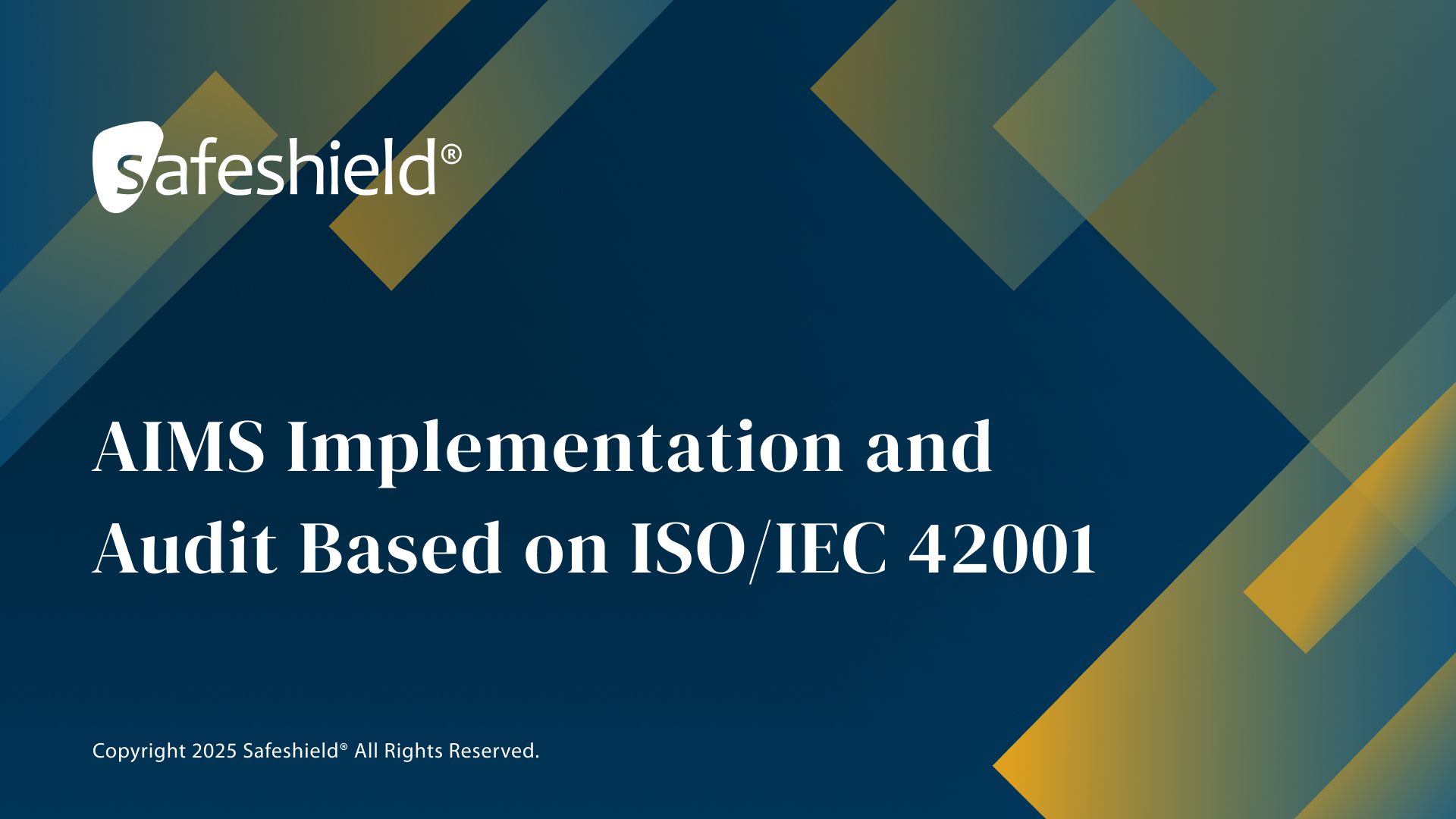ISO/IEC 42001 Implementation Guide: Best Practices for AI Governance and Compliance
July 1, 2025
The adoption of AI technology is accelerating, showing an 85% increase in adoption from small to medium sized businesses in Europe alone since January 2023. But with this bloom of new AI technology comes the challenge of maintaining responsible AI practices.
The rapid evolution and adoption of AI technology offers massive opportunities but also introduces risks in the form of ethical concerns and security vulnerabilities, while opening the door for further regulatory complexity.
Without a structured approach, businesses risk deploying AI systems that lack the qualities that consumers and stakeholders have come to expect (like fairness and transparency), potentially leading to reputational damage and even legal consequences. To address these potential issues organizations should look to standards like ISO/IEC 42001.
If you’re not familiar with ISO/IEC 42001, we’ve taken an in-depth look at it here.
Understanding ISO/IEC 42001 and implementing it effectively, however, can be challenging. In this blog, we’ll take you through some best practices to help you adopt ISO/IEC 42001
and work towards a more responsible future with AI.
Implementing an AI Management System (AIMS)
One of the most important first steps a business can take in responsible AI deployment is to implement an AI Management System (AIMS). This structured framework helps organizations manage risks related to AI, whilst also being able to keep up with evolving regulatory and ethical standards. An AIMS:
- Enhances transparency (e.g. this would allow managers to track, document, and explain how their AI system came to certain decisions or assumptions through data analysis.)
- Strengthens trust with stakeholders (e.g. an AIMS serves as evidence to ensure that safeguards are employed in the AI system, effectively minimizing the potential for misuse.)
- Ensures AI systems remain effective and aligned with industry best practices (e.g. conducting continuous and periodic performance reviews to ensure that the AI system meets compliance standards.)
With AI technology evolving quickly, so are the regulatory standards that govern it. Without a strong framework in place, companies may struggle to adapt, creating challenges concerning both operations and ethics. This could be easily avoided with proper forethought and planning.
Embedding Governance Early
Whether it’s app development, analyzing data, or anything in-between, implementing strong AI governance from the beginning is crucial for success. A clear and well-defined AI management strategy ensures the ethical implementation of AI and reinforces accountability across departments. Here are some benefits of making compliance a core component of your AI strategy:
- Reduce risks (e.g. identifies compliance risks early in system development, before they have time to escalate into costly violations).
- Improve operational efficiency (e.g. implementing strong governance practices will avoid confusion later about decision making or navigating workflows).
- Demonstrate a commitment to responsible deployment of new AI technology (e.g. shows your stakeholders and clients that your organization proactively complies with emerging AI standards and is willing to go the extra mile to ensure ethical AI use).
Proactively addressing compliance concerns ensures AI technology is developed with transparency and fairness, whilst also maintaining a high level of accountability that allows companies to meet legal and regulatory expectations.
Compliance is a Continuous Process
Compliance is an ongoing process that requires continuous improvement. AI systems must be regularly audited to maintain accuracy and fairness. Periodic reviews and impact analyses help companies:
- Identify bias (e.g. detecting biased or discriminatory patterns within the AI system that targets certain groups of people—like when police facial recognition technology couldn’t tell the difference between black people).
- Spot inefficiencies (e.g. finding bottlenecks in your AI workflows that slow down your processes and outputs).
- Address ethical concerns as AI models evolve (e.g. ensures that AI systems remain ethical, unbiased, and compliant, even though future data inputs or system updates).
AI is only as good as the data it learns from; therefore, it’s important to retrain and refine models with high-quality, up-to-date data. Without regular retraining, AI systems risk becoming outdated, leading to flawed decision-making and unintended biases.
Strengthening Data Governance
The foundation of responsible AI is strong data governance. Businesses must establish strict data quality standards to ensure accuracy, consistency, and transparency across AI operations. Key practices include:
- Implementing protocols for the collection, validation, and storage of data (e.g. implementing structured workflows for data reviews and approval before data is stored in AI training databases).
- Ensuring all AI-driven decisions are based on reliable and traceable data (e.g. maintaining clear audit trails that show which data sources were used and what data contributed to AI outputs).
- Applying strict access controls, encryption, and secure authentication measures (e.g. using role-based access permissions and encrypted storage for accessing AI datasets).
These measures protect sensitive information and support compliance with regulations like GDPR (Europe) and CCPA (North America). Businesses that prioritize transparency ensure their AI systems remain legally compliant and maintain strong ethical principles. They also strengthen both stakeholder and consumer trust.
Continuously Analyzing AI Risk
AI risk analysis is another essential piece of the puzzle. Fairness and bias in AI models remain a top priority, which makes risk analysis essential. This means consistent, ongoing testing, fairness audits to prevent discriminatory outcomes, and the constant refinement of data sets. But beyond fairness, security should be a major concern for any business:
- AI models process huge amounts of sensitive data, making them a prime target for cyber threats.
- Strong, effective security measures like encryption and access controls help prevent data breaches and maintain adherence to privacy laws.
Operational risks are also a concern. Unintended AI outcomes can arise due to system failures, inaccurate predictions, or other unforeseen external factors. To keep AI reliable, it must be continuously monitored, regular audits must be performed, and businesses should create contingency plans for potential failures.
Embedding Ethics into AI
Effective AI governance begins with a structured framework that supports ISO/IEC 42001 compliance. Clear AI ethical principles must be established that prioritize:
- Transparency (ensuring AI processes and decisions are understandable and explainable),
- Fairness (preventing discriminatory outcomes and promoting equity in AI applications),
- Accountability (assigning responsibility for AI decisions and their consequences),
These principles should be embedded into company policies and decision-making processes to shape how AI is developed and deployed. Defining roles and responsibilities within AI governance ensures accountability, with dedicated personnel overseeing compliance, risk management, and ethical considerations.
By conducting in-depth risk assessments and implementing strong governance policies, businesses can anticipate and mitigate potential threats before they escalate.
The Path to Responsible AI
AI adoption is accelerating rapidly, but companies that prioritize integrating compliance, ethics, and governance into their AI strategies will be the ones best positioned for long-term success.
Addressing these challenges proactively will lead to building AI systems that support sustainable growth, while earning the trust of both stakeholders and customers alike.
ISO/IEC 42001 offers a valuable framework for companies looking to make responsible AI deployment a priority. But compliance requires continuous evaluation, a willingness to adapt, and a deep-rooted commitment to ethical best practices. Any business willing to embrace this mindset is guaranteed to help shape the future of AI.
If you're interested in learning more about ISO/IEC 42001, check out our free training videos. They're available on our website, or on our Youtube channel.
Share this article





